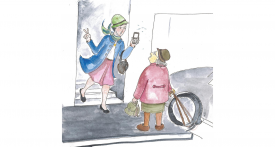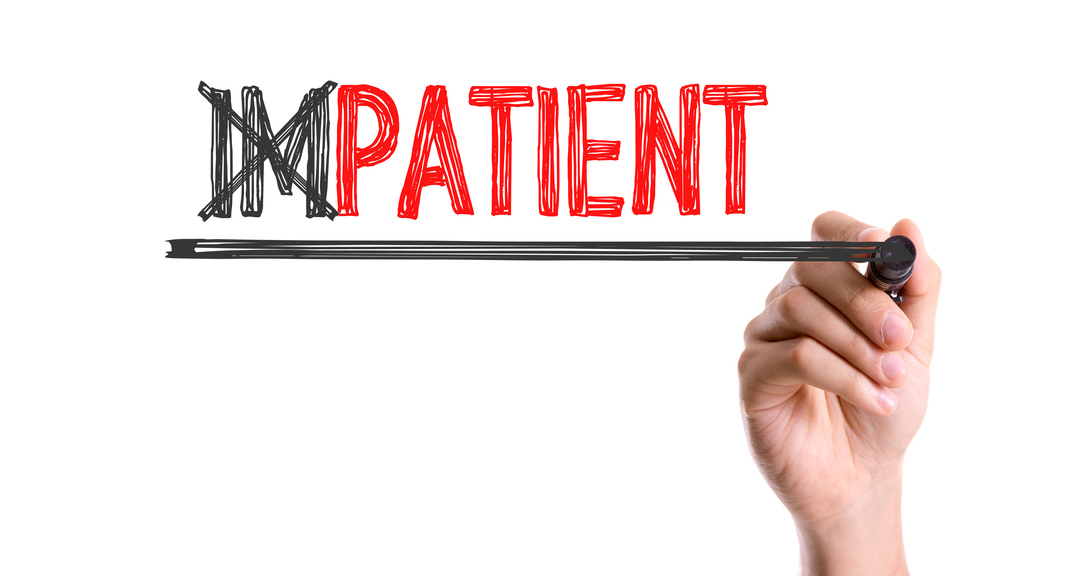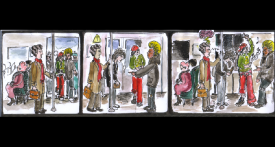Search results for tag "Self-knowledge" - 10 answer(s)
227
Vote
“Know thyself”. This is certainly a beautiful maxim, but how can we expect to achieve such an end when part of ourselves is resisting so vigorously and preventing us from seeing our own faults? It is a fact: we tend to systematically overvalue ourselves and we are much more sensitive to the ethical wrongdoings of others than to our own. This two-part article by Sandrine Duplessis suggests that the solution may well lie in the problem: it is by changing our behaviour toward others that we may come to achieve a more lucid knowledge of ourselves.
Read more
207
Vote
A number of annoying things have happened to me recently. There was that young man who shoved me as he was getting on the subway; that colleague who asked me to finish some of his work and then left the office for the day; and then those other colleagues who kept interrupting me while I was in the middle of an important task to ask me the same question over and over again—a question to which I did not have the answer… Those incidents occurred over a two-day period. They put me in a state of irritation and bad mood I had never experienced before.
Read more
298
Vote
Now that we have identified the forces at work behind impatience and why we should take it seriously, it is time to ask ourselves how to fight against this character flaw and its most directly harmful manifestations. Francoise Klein looks into the concrete forms of this practice. After semiology comes therapy…
Read more
321
Vote
Gluttony is little more than indulging in guilty pleasures and curiosity (only) killed the cat. What about impatience? It is another one of those traits we reluctantly call a character flaw, especially when we are the ones who have it. When it is not simply valued as a mark of high standards and perfectionism, it is at worst looked upon with leniency. Yet at the same time patience is a praised virtue. And we have all witnessed the effect impatience has on others, the pressure put by impatient people on those around them and the tension that ensues, none of which is ever pleasant.
Read more
422
Vote
“A snake-catcher went to the mountains to catch a snake by his incantations…”. Using this tale recounted by the Persian mystical poet Rumi as a starting point, Leili Anvar introduces here the notion of imperious self.
The imperious self is a central concept in Ostad Elahi’s philosophy. It is this product of the human psyche against which we must relentlessly struggle in order to make spiritual progress, for it is the origin of those of our impulses that systematically and insidiously arise to contradict correct ethical thoughts.
Read more
266
Vote
This article was written by Scr, a regular contributor to the e-ostadelahi website. It gives an account of what ethical practice can be like for those who seek to progress on the path of perfection. The two everyday scenarios presented here help provide insight into our actions and thoughts. Whether we share the author’s conclusions or not, his approach is in our opinion worthy of interest; it is an introspective self-analysis that results in an awareness of one’s emotions—a stepping stone toward ethical readjustments of our thoughts and behaviour.
Read more
256
Vote
In a book about self-esteem, the French psychiatrist Christophe André cites a number of social psychology studies according to which, in any given field, most of us feel just a little bit superior to the average person. We feel a bit more skilled, a bit more intelligent, we think that we have better taste, etc. “Based on these studies taken as a whole, he writes, 67 to 96% of people overestimate themselves in comparison to their peers. And that phenomenon is fully subconscious…”
If this is true when it comes to professional skills or taste, it is also true, and perhaps even more so, when it comes to ethics. Indeed, while we may sometimes nurture an inferiority complex with regards to our looks, general knowledge or intelligence, we rarely have similar doubts with regards to our moral values.
Read more
182
Vote
In two previous articles, here and here, I wrote about the methods I tested to improve my self-knowledge, in response to which very interesting examples were also posted in the comments. Continuing this approach I went on to observe people not for the indirect messages I could draw (see here), but to single out a few character traits from their behaviour and then compare these traits with my own. Let me explain.
I have a colleague called Selma whom I greatly admire for her courage and her ability to be both respectful and fearless without servile flattery toward hierarchy. I myself lack self-confidence and am easily impressed by my superiors. I am all the more aware of this as I can compare myself to Selma. Lack of self-confidence is not in itself a harmful character trait for the progress of the soul, but it can quite easily become harmful in certain situations. For example, I was at a meeting with my boss Paul and the company head, when in the middle of the discussion Paul started criticising Louise, another of my colleagues, quite unjustly and under cover of humour. Not only did I lack the courage to correct the false statements made about Louise, but I smiled at the jokes my boss made, even though I really didn’t feel like it. After the meeting was over, I wondered how Selma, whom I had often seen in similar situations, would have reacted in my place. She would certainly have defended Louise, although with a pinch of humour to preserve Paul’s pride. This process of comparison enabled me to see the inadequacies in my own attitude much more clearly. Selma’s behaviour brought my own actions to light and helped me evaluate them more accurately. At the same time, it constitutes a source of inspiration on how to be more courageous, in practice, in ordinary everyday professional circumstances.
Read more
243
Vote
 To complete and sharpen my self-portrait, I decided to consider others as mirrors. The idea was to observe people’s behaviour towards me in order to find clues about myself and about what to focus on to further perfect myself spiritually. Having made this resolution, I got ready for my day and went off to work. As I pulled the car out of the garage and was about to turn into the street, I realized I had forgotten my cell phone. I left my car on the sidewalk right outside the gate and rushed inside to get my phone. I rushed back out less than two minutes later, just in time to find the neighbourhood grumpy old lady vehemently banging her walking stick against the metal rim of my front wheel. “It happens every time!” I said to myself. “Every single time I leave my car for one second on the sidewalk she pops up out of nowhere and starts banging on it!” This time, I wasn’t going to take it and so I gave her a piece of my mind: “I never leave my car out here for more than two minutes, this is completely out of line, it’s technically my driveway”, etc.
Read more
278
Vote
 It is always possible to limit one’s knowledge of the principles that constitute any given philosophy, spiritual thought, religion or psychological theory to a purely theoretical level. This approach sometimes suffices to help give a general direction to one’s life and provide a reassuring framework by lending meaning to one’s experiences. To set into motion a genuine process of change in oneself it is however necessary to enter the practical realm of spirituality, namely, the process of perfection of the soul. But where to begin? What exactly should one do? The point here is not to put into practice religious rituals or to apply predefined moral prescriptions. In fact, spiritual work begins with a self-discovery. The first step is to observe oneself, as if from the outside, to carefully analyse oneself, and to “accurately assess [one’s] own attributes, positive qualities, strong points, flaws, weak points, etc.”. This approach requires a good amount of sincerity as it involves acknowledging and confronting one’s faults. It also requires a minimum of self-confidence in order not to lose hope in the face of one’s weaknesses. Finally, it is essential to keep in mind that this inventory of our personality must be done in the context of the process of spiritual perfection. In other words, the criteria with which we would measure our strengths and weaknesses and our qualities and faults should not be dictated by social trends but by ethical and spiritual values. For example, an introverted or reserved personality can appear, socially speaking, as a weak point, whereas it is neither a fault nor a quality spiritually speaking. It can even be an asset, as introverted people often have a greater capacity for self-analysis.
Read more
« Prev - Next »
|

 News
News Podcast
Podcast













Recent Comments